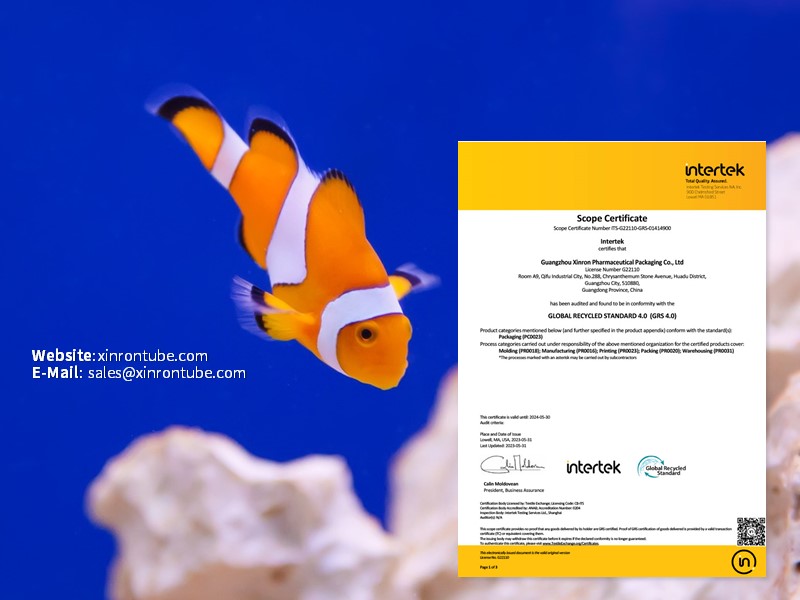Company News
Recycled Aluminum: Making Sustainable Choices for a Greener Future
Views : 1370
Update time : 2023-11-06 08:33:53
In our quest for a more sustainable and eco-friendly lifestyle, recycling has become a fundamental part of our daily routines. Among the various materials that can be recycled, aluminum stands out for its remarkable sustainability benefits. When it comes to recycling aluminum, you might come across terms like "pre-consumer waste" and "post-consumer waste." What do these terms mean, and how do they impact our environment and the products we use? Let's explore the definitions and differences between pre-consumer and post-consumer aluminum and why choosing recycled aluminum is a smart choice for a greener future.

Defining Pre-Consumer and Post-Consumer Waste
Pre-consumer waste refers to scrap aluminum generated during the manufacturing and production processes before reaching the end consumer. This includes excess material, trimmings, and defective parts produced during the making of aluminum products. On the other hand, post-consumer waste includes aluminum items that have served their original purpose and are collected from consumers for recycling. Think of used aluminum cans, foil, or even old window frames and siding.
Four Key Differences Between Pre-Consumer and Post-Consumer Aluminum
1) Source of Material
Pre-consumer aluminum originates from manufacturing processes, making it relatively clean and less exposed to external contaminants. Post-consumer aluminum comes from used products, which can be more varied in terms of quality and contamination due to exposure to external factors.
2) Quality and Contamination
Pre-consumer aluminum is typically cleaner and has fewer impurities compared to post-consumer aluminum. Post-consumer aluminum may contain contaminants such as food residues, labels, or coatings, which need to be removed during recycling.
3) Recycling Process
Pre-consumer aluminum is easier to manage and process due to its cleaner state. Post-consumer aluminum requires more extensive cleaning and sorting, adding complexity to the recycling process.
4) Environmental Impact
Both pre-consumer and post-consumer aluminum recycling reduce the carbon footprint of aluminum production, but pre-consumer aluminum may have a slight edge due to its cleaner state and lower energy requirements during recycling.
Why Choose Recycled Aluminum for Products
Recycling aluminum saves a significant amount of energy compared to extracting and refining raw bauxite ore, the primary source of aluminum. This energy savings directly translates into reduced greenhouse gas emissions. Also, using recycled aluminum reduces the demand for virgin resources, helping conserve natural resources and reduce environmental degradation associated with mining.
Both pre-consumer and post-consumer aluminum recycling contribute to a lower carbon footprint, promoting a more sustainable and eco-friendly manufacturing process. Choosing recycled aluminum supports the concept of a circular economy, where materials are continuously reused and recycled, reducing waste and promoting sustainable consumption.
The definitions and differences between pre-consumer and post-consumer aluminum shed light on the importance of recycling in our efforts to create a more sustainable future. By opting for products made from recycled aluminum, we can actively contribute to reducing our carbon footprint, conserving resources, and promoting environmentally responsible practices. It's a small change that can make a big difference in protecting our planet for generations to come.
So, the next time you reach for an aluminum product, choose recycled and make a positive impact on our environment.
Guangzhou Xinron Pharmaceutical Packaging Co., Ltd. has obtained GRS 4.0 (Global Recycled Standard) certification. We supply medicinal aluminum tubes and cosmetic aluminum tubes produced from 100% pre-consumer scrap aluminum to contribute to environmental protection. For more information or inquiries, please contact us: sales@xinrontube.com

Defining Pre-Consumer and Post-Consumer Waste
Pre-consumer waste refers to scrap aluminum generated during the manufacturing and production processes before reaching the end consumer. This includes excess material, trimmings, and defective parts produced during the making of aluminum products. On the other hand, post-consumer waste includes aluminum items that have served their original purpose and are collected from consumers for recycling. Think of used aluminum cans, foil, or even old window frames and siding.
Four Key Differences Between Pre-Consumer and Post-Consumer Aluminum
1) Source of Material
Pre-consumer aluminum originates from manufacturing processes, making it relatively clean and less exposed to external contaminants. Post-consumer aluminum comes from used products, which can be more varied in terms of quality and contamination due to exposure to external factors.
2) Quality and Contamination
Pre-consumer aluminum is typically cleaner and has fewer impurities compared to post-consumer aluminum. Post-consumer aluminum may contain contaminants such as food residues, labels, or coatings, which need to be removed during recycling.
3) Recycling Process
Pre-consumer aluminum is easier to manage and process due to its cleaner state. Post-consumer aluminum requires more extensive cleaning and sorting, adding complexity to the recycling process.
4) Environmental Impact
Both pre-consumer and post-consumer aluminum recycling reduce the carbon footprint of aluminum production, but pre-consumer aluminum may have a slight edge due to its cleaner state and lower energy requirements during recycling.
Why Choose Recycled Aluminum for Products
Recycling aluminum saves a significant amount of energy compared to extracting and refining raw bauxite ore, the primary source of aluminum. This energy savings directly translates into reduced greenhouse gas emissions. Also, using recycled aluminum reduces the demand for virgin resources, helping conserve natural resources and reduce environmental degradation associated with mining.
Both pre-consumer and post-consumer aluminum recycling contribute to a lower carbon footprint, promoting a more sustainable and eco-friendly manufacturing process. Choosing recycled aluminum supports the concept of a circular economy, where materials are continuously reused and recycled, reducing waste and promoting sustainable consumption.
The definitions and differences between pre-consumer and post-consumer aluminum shed light on the importance of recycling in our efforts to create a more sustainable future. By opting for products made from recycled aluminum, we can actively contribute to reducing our carbon footprint, conserving resources, and promoting environmentally responsible practices. It's a small change that can make a big difference in protecting our planet for generations to come.
So, the next time you reach for an aluminum product, choose recycled and make a positive impact on our environment.
Guangzhou Xinron Pharmaceutical Packaging Co., Ltd. has obtained GRS 4.0 (Global Recycled Standard) certification. We supply medicinal aluminum tubes and cosmetic aluminum tubes produced from 100% pre-consumer scrap aluminum to contribute to environmental protection. For more information or inquiries, please contact us: sales@xinrontube.com
Related News

Why Aluminium Hand Cream Tubes Are the Best Choice
Feb .25.2025
When it comes to packaging hand creams, product developers have several options—plastic tubes, glass jars, pump bottles, and aluminium collapsible tubes. Among these, aluminium hand cream tubes stand out as a superior choice due to their excellent protect

The Hygienic Advantages of Aluminum Pharma Tubes
Nov .25.2024
In the world of pharmaceutical and cosmetic packaging, maintaining hygiene and product safety is paramount. Consumers rely on packaging to protect the integrity of their medications, skincare products, and other personal care items. Pharmaceutical aluminu

7 Benefits of Using Aluminum Pharmaceutical Tubes for Cosmetics
Nov .21.2024
In the competitive world of cosmetics, packaging plays a crucial role in ensuring product safety, efficacy, and consumer appeal. Aluminum pharmaceutical tubes have become a popular choice for cosmetic packaging due to their numerous benefits. Here are sev

Why Aluminum Ointment Tubes are Preferred for Pharmaceutical Packaging
Jul .18.2024
In the pharmaceutical industry, the packaging of products is just as critical as the formulation itself. Aluminum ointment tubes have emerged as the preferred choice for packaging a variety of pharmaceutical products, including ointments, creams, and gels
